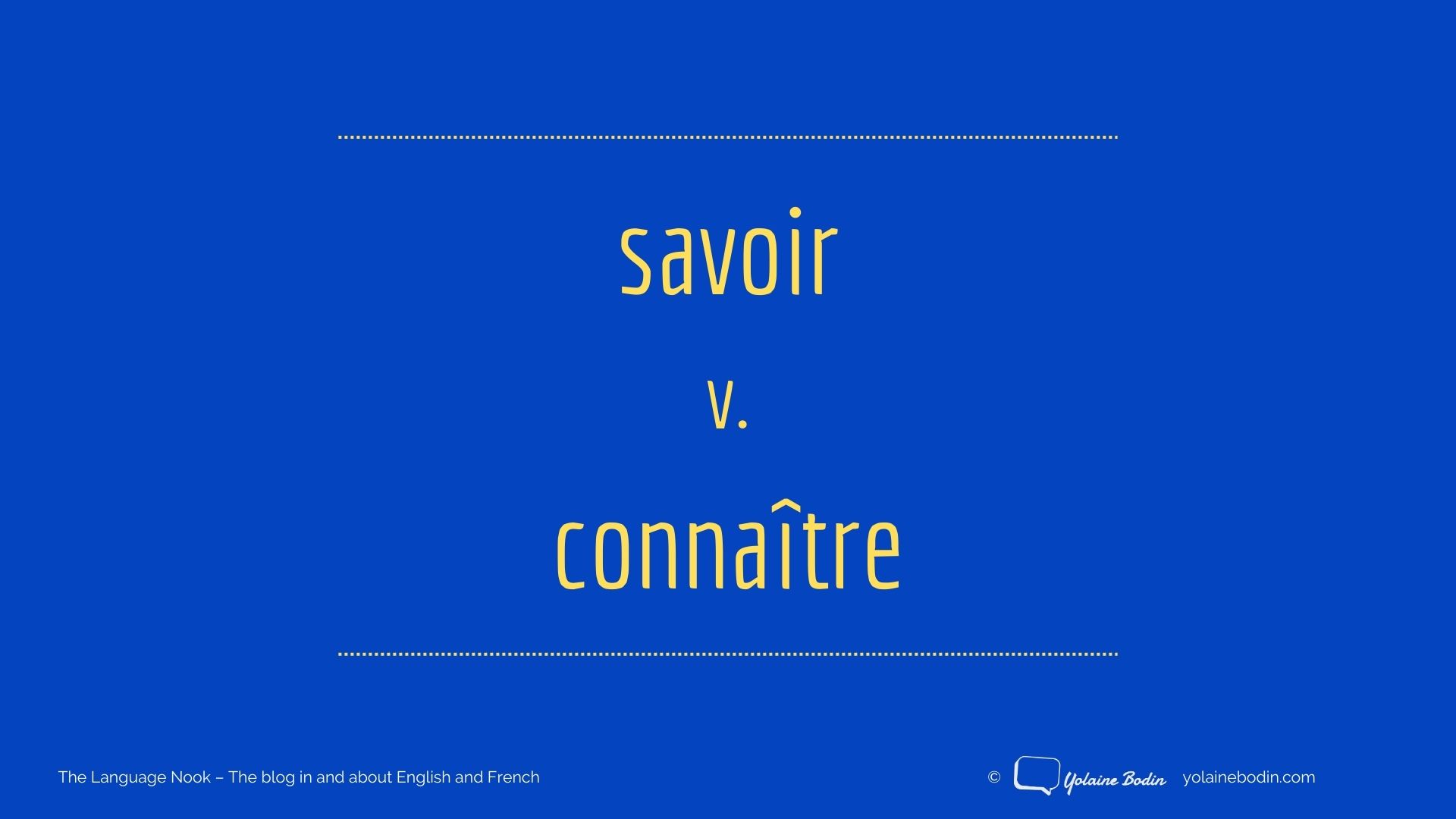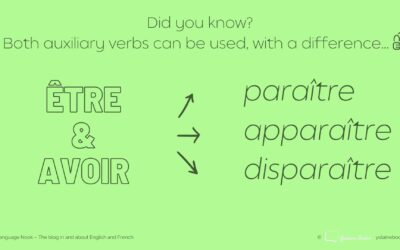Savoir or connaître ?
The confusion between both verbs is very common if you are learning French, especially if there is only one verb in your mother tongue, as is the case in English.
So, how can you choose between these verbs? Don’t worry, it’s not as complex as it may seem. All you have to do is be aware of how the sentence is built and what comes after the verb.
If the verb is followed by a noun phrase, use connaître.
If the verb is followed by another verb in the infinitive form or by a subordinate clause, choose savoir.
Let’s look at a few examples to highlight this rule:
Connaître
Connaître is followed by a noun phrase, i.e. a noun and a determiner (article, possessive or demonstrative adjective, etc.), or by a pronoun and other words accompanying the noun or pronoun in question:
- Je connais bien ce quartier, j’y vis depuis longtemps. (I know this neighbourhood very well, I’ve been living here for a long time.)
- Elle connaît mes voisins. (She knows my neighbours.)
- Tu connais cette chanson ? (Do you know this song?)
- Il ne connaît encore personne ici, il vient juste d’arriver. (He doesn’t know anyone here yet, he’s just arrived.)
- Nous ne connaissons pas le prix. Nous allons nous renseigner. (We don’t know the price. We’ll find out.)
Savoir
The verb savoir is followed by another verb in the infinitive form or by a subordinate proposition, i.e. a part of a sentence introduced by a relative pronoun or conjunction, e.g. que, qui, quand, où, parce que, comme etc.
Note that when followed by a verb in the infinitive form, the English equivalent is “can”.
- Elle sait nager. (She can swim.)
- Je sais parler français. (I can speak French)
- Ils savent qu’ils peuvent prendre le train pour aller de Paris à Strasbourg. (They know that they can take the train to travel from Paris to Strasbourg.)
- Savez-vous où se trouve la banque la plus proche ? (Do you know where the nearest bank is?)
- Je ne sais pas quoi faire. (I don’t know what to do.)
- Comment je peux savoir si ça l’intéresse ou pas ? (How can I know whether he is interested or not?)
- Entre ces deux films, il ne sait pas lequel regarder. (Between these two films, he doesn’t now which one to watch.)
Here is a memo to help you remember how to choose between connaître and savoir:
Memo
| Connaître | Savoir |
| + noun phrase | + infinitive verb or relative pronoun or conjunction (qui, que, quand, parce que…) |
Worth noting and remembering: savoir can also be used to emphasise a point or on its own.
Using savoir to emphasise a point in a conversation :
- Ils sont vraiment très gentils, tu sais ! (They’re really kind, you know!)
- Cette histoire est passionnante, vous savez ! (This story is fascinating, you know!)
Using savoir on its own in quick responses like these:
- Oui, je sais. (Yes, I know.)
- Ça va, je sais, je sais ! (OK, I know, I know!)
- Non, je ne sais pas. (No, I don’t know.)
For more advanced levels, you can also learn that a noun phrase can sometimes be introduced by the verb savoir. The meaning will be slightly different whether you choose to use savoir or connaître.
Use connaître + noun phrase to express the practical knowledge of the existence of someone or something:
- Je connais ce poème de Victor Hugo ( → here, it means I know it in a way I can talk about it)
Use savoir + noun phrase to express a deeper intellectual knowledge:
- Je sais ce poème de Victor Hugo ( → here it means I know it so well I can recite it)
There you are! You now know what difference there can be between the words especially and specially. Congratulations! 🙂





0 Comments